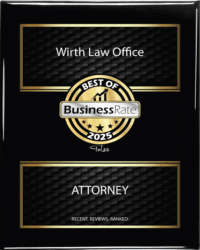 Tulsa, Oklahoma defines contributing to delinquency of a minor as knowingly and willfully encouraging, aiding, or abetting a minor to become or remain a delinquent or runaway child. Okla. Stat. tit. 21 § 856
Tulsa, Oklahoma defines contributing to delinquency of a minor as knowingly and willfully encouraging, aiding, or abetting a minor to become or remain a delinquent or runaway child. Okla. Stat. tit. 21 § 856
If this sounds like a broadly constructed statute, it is. The broader the statute, the more circumstances, it is designed to cover.
In Oklahoma, a minor is a child under the age of 18 unless otherwise specified by statute. Okla. Stat. tit. 15 § 13
For alcohol consumption, the legal age remains 21 and older. Okla. Stat. tit. 37 § 241
Aiding a Runaway
Oklahoma law defines a runaway child as an unemancipated minor who voluntarily leaves their family home without a compelling reason, without the consent of a custodial parent or other custodial adult, and without the parent’s knowledge regarding the child’s location.
An adult may help a child escape or leave home for a compelling reason, defined as imminent danger from incest, a life-threatening situation, or equally traumatizing circumstance. Imminent danger to a child’s physical, emotional, or mental health may suffice.
If none of these circumstances are present, helping a child to run away from home is in direct violation of the law against contributing to delinquency of a minor.
If an adult helps a child escape whom they reasonably believe to be in physical, mental, or emotional danger, the adult must notify the Oklahoma Department of Human Services or local law enforcement of the location of the child within 12 hours of helping the child in order to avoid prosecution for contributing to delinquency of a minor.
What is Contributing to Delinquency of a Minor?
In Oklahoma, it is against the law to knowingly cause or encourage a child under 18 years of age to engage in certain acts. These are acts that can and do harm a child or have a negative impact on a child’s future. These acts contribute to a child’s delinquency.
The statute expressly forbids you from aiding a child to commit or participate in any activity that is deemed a felony if it is committed by an adult. Likewise, you cannot encourage or solicit a child to participate in or join a gang.
Criminal street gangs engage in a number of illegal behaviors that can change a child’s life: assault and battery; robbery; homicide; the use, sale, and trafficking of illegal drugs; possession and discharge of a firearm; and more. Any of these activities are highly dangerous for a child to be involved in.
There are defenses available to you. The prosecution must prove that you aided or encouraged the activities knowingly and willfully. If the prosecution is unable to prove this element, there is no conviction.
For example, while providing alcohol to a minor is certainly an act that would be considered to be contributing to delinquency of a minor, there would be no conviction if you mistakenly thought the minor was of legal drinking age.
Penalties are Varied and Can Be Severe
Because the acts that come under the law’s prohibition are varied, so are the penalties for breaking this law.
A first offense of contributing to the delinquency of a minor is usually treated as a misdemeanor punishable by up to a year in jail, or a fine of up to $1,000, or both.
However, subsequent violations are treated as felonies punishable by up to three years in jail, a fine of up to $5,000, or both.
If you encourage or abet a child to commit a felony, you could be punished by the maximum penalty allowed by the law for that felony. For example, if you encourage or aid a child in committing a drug crime, you can spend up to 20 years in prison and pay as much as a $200,000 fine.
And if you encourage or solicit a child to join in or participate in illegal gang activities, you could spend up to five years in prison for the first offense. Subsequent offenses are punishable by 5 to 10 years in prison.
Strategy Session: Tulsa Criminal Defense Attorney
If you are being charged with contributing to delinquency of a minor in Oklahoma, it is important that you hire an experienced Tulsa criminal defense attorney. Criminal convictions can carry serious consequences.
Only a local attorney will know the court system and judges in the area. Do not delay. Our initial consultation is free.
Call Wirth Law Office – Tulsa at 918-879-1681 or toll free at 1-888-Wirth-Law (1-888-947-8452). You can also submit the question form at the top right of this page.
We pride ourselves on providing our clients with excellent representation at reasonable prices.




























